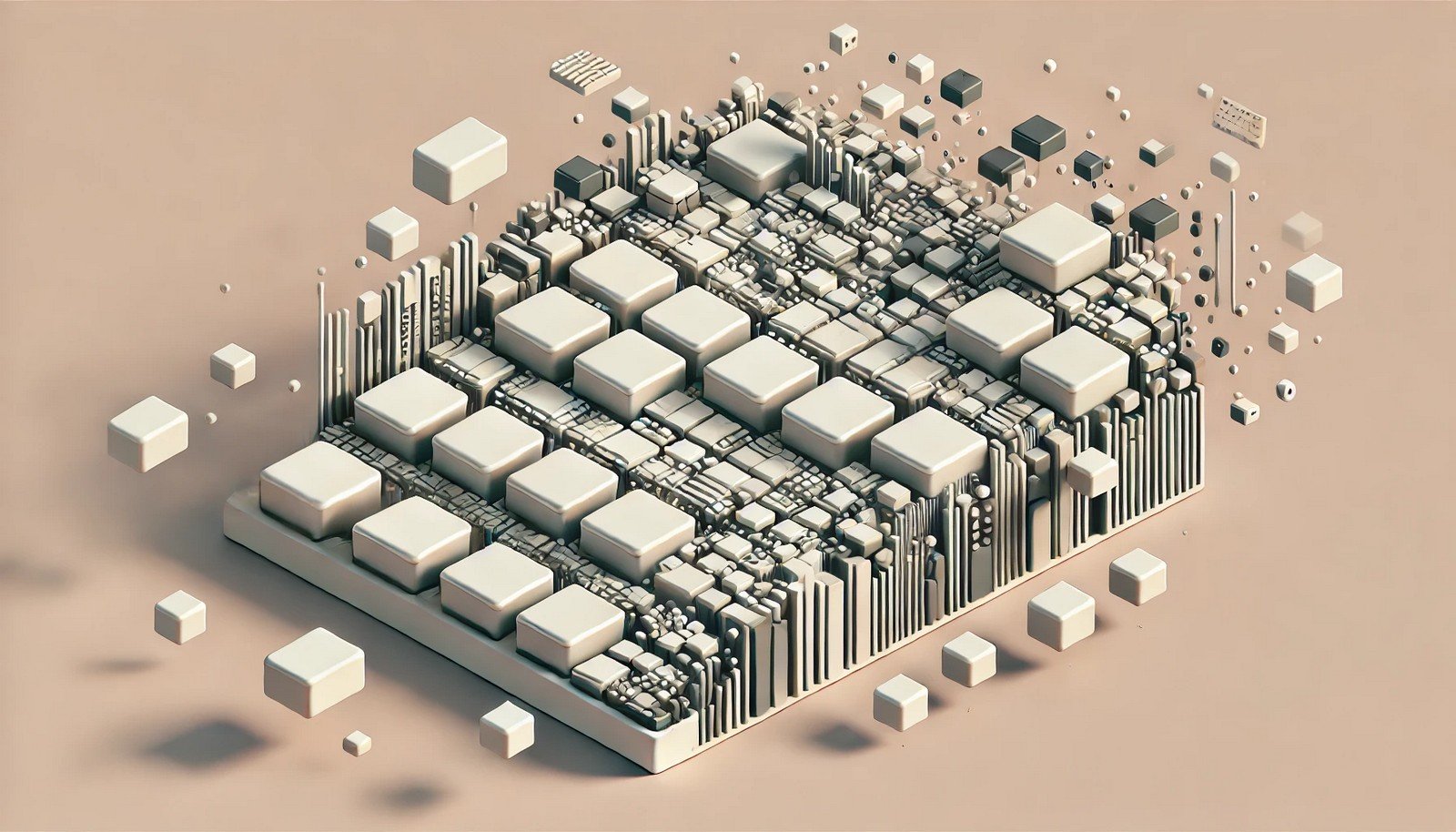Memory Fragmentation
 (Representational Image | Source: Dall-E)
(Representational Image | Source: Dall-E)
Quick Navigation:
- Memory Fragmentation Definition
- Memory Fragmentation Explained Easy
- Memory Fragmentation Origin
- Memory Fragmentation Etymology
- Memory Fragmentation Usage Trends
- Memory Fragmentation Usage
- Memory Fragmentation Examples in Context
- Memory Fragmentation FAQ
- Memory Fragmentation Related Words
Memory Fragmentation Definition
Memory fragmentation occurs when memory is allocated and deallocated in a way that leaves small, noncontiguous free spaces. These fragmented gaps make it difficult for large memory requests to be fulfilled even when the total free memory is sufficient. It can lead to inefficient memory usage and performance degradation in computer systems. Fragmentation can be categorized into external fragmentation (gaps outside allocations) and internal fragmentation (unused space within allocations).
Memory Fragmentation Explained Easy
Think of your computer's memory as a big box. Imagine putting in toys of different sizes randomly, then taking some out and putting new ones in. Over time, the box has a lot of small empty spaces that aren't big enough for your largest toy. That’s memory fragmentation—lots of small gaps that make it hard to store big things.
Memory Fragmentation Origin
The concept of memory fragmentation became significant with the advent of dynamic memory allocation techniques in the mid-20th century. As computing systems evolved, the need for efficient memory management highlighted the challenges posed by fragmentation, particularly in multitasking environments.
Memory Fragmentation Etymology
The term "fragmentation" derives from the Latin "fragmentum," meaning "a broken piece," reflecting the scattered and broken state of memory blocks.
Memory Fragmentation Usage Trends
Memory fragmentation has been a consistent challenge in system design. With the rise of virtual machines and containerized applications, its impact has grown in importance, prompting innovations like garbage collection, memory compaction, and advanced allocation strategies. Trends in operating systems and high-performance computing continue to address this issue.
Memory Fragmentation Usage
- Formal/Technical Tagging:
- Operating Systems
- Memory Management
- Dynamic Allocation - Typical Collocations:
- "external memory fragmentation"
- "memory fragmentation issue"
- "fragmentation in virtual memory"
- "reducing memory fragmentation"
Memory Fragmentation Examples in Context
- Memory fragmentation in gaming applications can cause delays or crashes when the system fails to allocate large contiguous memory blocks.
- High-performance servers often face fragmentation issues, leading to suboptimal resource utilization.
- Techniques like memory pooling are used to mitigate fragmentation in real-time systems.
Memory Fragmentation FAQ
- What is memory fragmentation?
Memory fragmentation is the process where free memory is broken into small, noncontiguous pieces, making it hard to allocate large blocks. - What causes memory fragmentation?
Frequent memory allocation and deallocation of varying sizes cause fragmented gaps. - How does fragmentation impact system performance?
It reduces efficiency and can cause memory allocation failures even when there is sufficient free memory. - What are the types of memory fragmentation?
External fragmentation (outside allocations) and internal fragmentation (within allocations). - Can memory fragmentation be avoided?
It can’t be completely avoided but can be minimized using techniques like memory compaction and defragmentation. - How is memory fragmentation related to operating systems?
Operating systems manage memory and must address fragmentation to optimize performance. - What is memory compaction?
Memory compaction rearranges free blocks to create larger contiguous spaces, reducing fragmentation. - Why is memory fragmentation a problem in gaming?
Gaming applications often require large, contiguous memory blocks, which fragmentation makes difficult to allocate. - Do all systems face memory fragmentation?
Most systems with dynamic memory allocation face it to some degree. - What tools help manage memory fragmentation?
Tools like garbage collectors, memory pool allocators, and custom allocators help manage fragmentation.
Memory Fragmentation Related Words
- Categories/Topics:
- Operating Systems
- Computer Architecture
- Software Engineering
Did you know?
Memory fragmentation was a critical challenge for early computer systems using punch cards, as physical memory was limited. Today, it influences cloud computing and virtualization, where efficient memory usage can save significant costs.
PicDictionary.com is an online dictionary in pictures. If you have questions or suggestions, please reach out to us on WhatsApp or Twitter.Authors | Arjun Vishnu | @ArjunAndVishnu

I am Vishnu. I like AI, Linux, Single Board Computers, and Cloud Computing. I create the web & video content, and I also write for popular websites.
My younger brother, Arjun handles image & video editing. Together, we run a YouTube Channel that's focused on reviewing gadgets and explaining technology.



Comments powered by CComment